Nikos Psaltopoulos
A Little Perspective From Space9/1/2020 "Thinking about the universe makes big problems small."My brain won’t shut up. I’m always on. Hard to shut down.
Even when I’m sleeping, I’m thinking. Worrying about family and friends. Thinking about the future in a new world disorder. Seeking relevance in a world of noise. Thinking about work, projects and todos. Consuming thoughts overwhelm us at the best of times. The same thoughts suffocate us at the worst of times. I know I’m not alone. This is you too. Overthinking the ‘bad’ is a problem that left unchecked, stifles our growth and condemns us to the status quo. Projecting helps. Seek space. Like, actual space — the stars, galaxies and entire universe. Visualise the night sky. An openness littered with lights from the past. A space that runs so deep, it’s hard to comprehend its enormity. When we get lost in space, we gain perspective. We realise how small we are. How small our challenges, fears and concerns are. How irrelevant our differences are. We realise the transient nature of everything and everyone around us. “Nothing is permanent in this wicked world — not even our troubles,” stated the famous English comic actor, Sir Charles Spencer Chaplin [aka Charlie Chaplin]. For some, this thought may thrust us into a panic-inducing abyss of fear — for others, it’s calming and grounding. Focus on the good this perspective can do for you. American astronomer Carl Sagan delivered perspective to the world with his powerful words describing the images captured of earth by NASA’s Voyager 1 in 1990. From beyond Neptune, a distance of 6 billion kms, we see our earth suspended in the darkness of space — a tiny spec in the cosmos. “There is perhaps no better demonstration of the folly of human conceits than this distant image of our tiny world,” Sagan said. “To me, it underscores our responsibility to deal more kindly with one another, and to preserve and cherish the pale blue dot, the only home we’ve ever known.” “Look at that dot. That’s here. That’s home. That’s us.” It took months for the images to pass through NASA’s Deep Space Network before arriving here. Truly remarkable. This tiny human made object hurtling through space capturing images of our galactic family and beaming them back to us. The power of a functioning collective is astonishing and breathtaking. This visualisation uses spacecraft trajectory data to show the family portrait image from Voyager 1’s perspective in February 1990. In my most tense moments, I think of Sagan and our little blue pixel. I think about my place in the universe. I realise how small I am. I accept it. I’m humbled. I’m happy to be here. The ability to stop train wreck thoughts from dominating my headspace and gain this level of perspective has helped me navigate through life’s toughest moments. Loss. Fear. Loneliness. Self-doubt. Perspective gaining through projection has calmed me when it’s mattered most. I reduce anxiety by thinking about space and my place in it. In the middle of a crisis, I look up. I always look up. Up, into the sky. It’s a form of meditation. Breathing in, breathing out. I project upwards and go beyond the physical surroundings of us. I keep going until my problem thoughts become smaller and smaller and the universe dominates — it’s liberating and intoxicating. I gain perspective, clarity and inspiration. I learn to focus on the good and be in the moment. Truly in the moment — feeling it intensely with every part of my mind and body. Breathing in, breathing out. “We’re made of star stuff,” Sagan famously said in an episode of Cosmos, a 13 part series which aired on PBS in the early 1980s. He explained that the carbon, nitrogen and oxygen atoms in our bodies were created over 4.5 billion years ago from previous generations of stars. Makes sense. Just like magnets attracted to each other, our conscious connection to space of course will calm and ground us — it’s only logical. It’s a connection we need to nurture. A connection we need to remind ourselves of. Quantum physics at its finest. Ultimately, at a time when the world is upside down — this is a reminder that gaining perspective requires awareness. An awareness to be proactively aware and not reactively charged. An awareness to sleep with a view to the night sky, getting lost in space and not in troublesome thoughts. An awareness to celebrate the miracles around us. To celebrate that we are here. We are together. We’re ok. To focus on the good and the beautiful learnings and surprises life gifts us. As American astrophysicist Neil deGrasse Tyson revealed in a Tweet from way back. “Curiously, light-loving green plants reject the Sun’s green light, reflecting it back at you, which is why they look green.” Mind blown. The world is an amazing place and I love being here. So much more to discover. Photo by Alexander Andrews on Unsplash
0 Comments
"When your life meets a galaxy far, far away."I fell into the Star Wars galaxy and I’m never coming out. This is why.
In the late 1970s, I watched Star Wars for the first time. It was unlike anything I had ever seen. Luke. Leia. Han. Chewbacca. C3PO. R2D2. Vader. These iconic characters ignited my imagination and followed my generation into our 20s, 30s and now 40s. The release of the prequels in 1999 kept the story alive introducing a new legion of fans to the Skywalker family — we even saw Darth Vader as a kid. In 2015, the 7th film in the saga was released — Force Awakens and [re]awaken the Star Wars franchise it did. Introducing new characters to new fans, Force Awakens achieved over $2 billion USD at the box office. As excited as I was to watch the film [and enjoy it, I did], I experienced something unexpected. For the first time, the story on screen and my life journey had strangely converged. Seeing Luke as an older man made me realise I was older too. His death in 2017’s The Last Jedi unsettled me. Seeing Luke disappear from his robe prompted more than just cinematic mourning but real life grief. Why was I grieving? “I was no longer in original trilogy VHS playback mode — stuck in time watching the hopefulness of youth.” Stopped by the reflection of my ageing face in the mirror one day, I realised. I was mourning the passing of time. I was a fresh faced 7 year old when I watched A New Hope. I was a newly wed when Phantom Menace was released. It was joyful and humbling to watch Force Awakens with my then 8 year old sons. Life moved forward. I was no longer in original trilogy VHS playback mode — stuck in time watching the hopefulness of youth. VHS became DVDs. The internet happened. DVDs became streaming. I grew up. As I got older and prior to any other Star Wars add ons, I always had the comforting presence of the characters I loved not too far away. Our DVD player got a thrashing — Star Wars films on loop. With Return of the Jedi in 1984, these characters became suspended in time. As far as we knew, the Empire was gone and the universe was still celebrating. The characters had become immortalised and frozen — forever youthful. We’d watch the original trilogy before school, after school and weekends. We would lose ourselves in hours of play and scene re-enactment. Unforgettable adventures with friends as we played with our Star Wars figures and spacecrafts for hours. A Afternoons with the Jones boys up our street. Trading figures + cards. Jostling to see who would play the parts of Darth or Luke. Happy days. I’ve seen A New Hope over 200 times, the lines of each character embedded in my mind. With the release of Force Awakens we saw the older version of the characters we love. The beautifully lived in and lined faces of Luke, Leia and Han. We had to accept the schismatic emotions that time provokes. Aroused by the curiosity of what happens next, yet nervously anticipating the unknown and inevitable. Then Rise of Skywalker brought the Skywalker story to a dramatic close. The end of an era. Confronting to contemplate on many levels. It’s saying goodbye to the old and embracing the new. When I watch the original trilogy, I’m back to feeling like the kid I was. Watching episodes 4, 5 + 6 makes me feel hopeful, carefree and comforted. Star Wars has been a close friend. It’s been a companion. A teacher. Escapism. The characters formed my tribe. Along the way, there have been many valuable life lessons learnt.
The bonus lessons? Enjoy every step of the adventure. Create the adventure. Be the adventure. Have people around you to enjoy it with and be acutely aware that time will pass. Time — it feels like only yesterday we first entered a galaxy a long time ago far, far away. A lot happens in 40+ years. Looking forward to the next 40 [and beyond]. May the Force be with you — always. Photo by chester wade on Unsplash "Looking after people and creating an empowered remote working culture is how to build a resilient business."A crisis can either make us or break us. Let it make us.
In times like these, we see the best and worst in people. As pressure and anxiety heighten, some leaders can be reactive with teams, colleagues and even customers — all with negative impact. Usually irreversible. No good comes from aggressive arm-waving debates or ego fuelled personality-driven shouting matches. No good comes from divisive, counterproductive conversations that deflect from the real issues and bring people down rather than elevate them. No good comes from these actions at the best of times let alone challenging times. These actions represent a scarcity mindset — there’s no abundance here. The pressure on leaders is real — and mounting. Concern for people. Disrupted workflows. Changing priorities. Record levels of unemployment. Financial downturn. Impending recession. Chasing targets set in a pre-COVID19 world. The unknown. It’s tough being a leader — it’s even harder in a new world disorder. Our opportunity is to navigate through this with empathy. To respond instead of reacting. The question is how? It’s about being a decent human. A crisis uncovers the decency we have as humans. It unravels and exposes our beliefs, ethics and values. “It’s about being trusting, brave and vulnerable — it’s about being you.” Our responses to situations are telling. We can clearly see who we are or who we’ve become by the way we interact with people and manage tough situations. This is why more than ever, we need to pause and reflect. This self-reflection creates a chance to grow. To grow as an individual and a leader. This crisis is a once in a lifetime opportunity to find ourselves and focus on being better humans. Reset. A humanistic approach in supporting teams and colleagues helps create a resilient business. A business that is better placed to weather the ups and downs of a suddenly disrupted world. A business that remains creative, productive and connected — powered by its people. What does this involve? It’s about showing heart to people when it matters most. Showing heart to people when they [we] need it most. It’s about being trusting, brave and vulnerable — it’s about being you. Relinquish the weight, pressure and formalities a leader’s title may carry, connect with your team as the person you are. Showing our humanity as leaders with all our imperfections, fears, complexes and accepting the backstories that make us. A lot has been written about this topic, describing these concepts as human-centred leadership, heartfelt leadership, etc — call it whatever. Ultimately, it’s human decency. Being human enough to understand that as leaders we can not perpetuate the lie that it’s ‘business as usual’ in a COVID riddled world. It’s not. Everything is different. Everything we did, everything we knew is now different. Everything will continue to be different. The first step is to accept it. We’re in an unpredictable predicament, in the thick of the unknown. So what to do? What does human decency look like in the context of work during extraordinary times? As American President, Franklin Delano Roosevelt said, people expect leaders to comfort and galvanise them. People - How do we get the best out of each other?
Working from Anywhere - How to empower remote working teams and remain connected?
As countries scramble to regain some normality by opening businesses and allowing employees to return to their physical place of employment, it’s important to consider the following.
It’s important to consider we’re dealing with a virus that recognises no government rules, no regulations, no borders. A deadly virus that by all reports is constantly mutating. If companies have the capabilities to keep teams working from home, then they should — it’s a social responsibility to do this. It’s also a responsibility leaders have to teams, their families and friends and another opportunity to demonstrate the focus on people first. Sometimes in the corporate world, people speak about ‘us and them’ or ‘us vs them’. This is no time for that. It’s just us. We’re one. All of us together. The opportunity here is to navigate through this. Some industries have been hit hard (very hard) and transformed forever as a result of this crisis. Travel, tourism, retail and counting. Showing amazing humanity and in a message that will make you cry, Airbnb’s Co-Founder and CEO, Brian Chesky announced that 1,900 ‘teammates’ will lose their jobs out of 7,500 people. Reading his message, you can just feel his empathy for the pain this decision will cause for so many of his colleagues and their families. Other industries have been hit less hard. What doesn’t change is the human impact. The most important part of our job right now is to be present. Present for our team. To listen. To understand. To support. To empathise. To act. Businesses are nothing without people. Focus on the people. Keep everyone safe and healthy. Keep everyone informed and engaged. Keep everyone together. This is what business resilience is about. I’m scared too. I don’t know how this situation will unfold. But I do know that how we treat each other now will determine our future. Showing love, respect and humanity when it matters most. As humans, we’re resilient and times like these can help forge deep connections that last a lifetime and leave a legacy. A crisis can either make us or break us. Let it make us. Top W@H Tips To Support Your Team9/1/2020 "A chance to humanise leadership and forge deeper connections as we work further apart — together."This is how leaders can build a resilient business that’s powered by people.
Focus on your team and create even stronger connections through a crisis.
To facilitate good communication and workflows, we’re using the following platforms. You might be consider something similar: Communication
Project Management
And email [every now and then]. Finally, show heart + empathy. Accept the good days + the bad. After all we're only human. Photo by Markus Spiske on Unsplash "In a world of new conspiracism, we must always use facts to stop bad things from getting worse." People are dying.
Democracies are crumbling. Corporations are collapsing. How did we get here? How did it get so complicated? We lost the truth in a series of convenient lies. Lies perpetuated as fact by disorientated people who are frustrated and afraid. Lies sold as facts by desperate and manipulative leaders who have so much to gain. Welcome to the new conspiracism — conspiracy without the theory. It’s a world in which opinions are formed by believing and sharing baseless conspiracies. A world in which we look for meaning and allocate blame to rationalise a situation that’s difficult to accept. A crisis feeds conspiracy. To some degree it’s an expected initial human reaction. Desperate for an explanation, we make one up. We’re not the first generation to ever experience this — the same was the case during the Russian Flu of 1889. Conspiracies theories were abundant and some almost identical to what’s circulating today. Including that recently installed electricity poles at the time were helping spread influenza. The difference today is the internet — it serves as rocket fuel for theories and takes them global with a click. With so much noise around us, we need to focus on the fundamentals. We need to know the facts. Facts matter more than opinions. If we’re going to get out of this alive and together, we need to be conscious and responsible about the information we consume and share. Let’s define what we’re talking about.
Opinions In A Crisis — At What Cost A Life? COVID19 is not just a medical crisis. It’s a misinformation catastrophe. From Presidents to family and friends, people pushing uninformed opinions is dangerous and irresponsible and costs lives. As governments push for mask wearing to reduce COVID19 infections, groups including Unmasking America have caused confusion on a subject matter we can’t risk being confused about. Whilst Facebook just took action and shut down the group which has over 9,000 members — many others remain, pushing uninformed opinions based on rumours and theories shared on social media as facts. The result? Dangerous misinformation and untruths spread like a virus. People believe the misinformation they read. Conspiracy theories thrive.
The list goes on. We need to take action. Whilst we can’t control the untruths spewed by leaders who have so much to gain [until we can vote them out], we can control what we say and what we choose to believe. If you’re sharing and perpetuating conspiracy theories — stop it. Stop it now. You’re not a doctor or a health care professional . You have a responsibility to yourself, the people you love and your community to be responsible. Stop with the conspiracy theories and invest time in learning. If you’re looking for facts and want to develop an informed opinion, seek out credible sources to build a foundation of knowledge. Look for leading medical authorities and a diverse range of reputable news outlets. Knowledge is power remember. Facts will help us navigate through this crisis — opinions won't. Opinions In Politics — What Could Go Wrong? In the 2016 US Elections, I campaigned for the Democrats for six months and spent the last month in California making noise for Hillary. In the countless conversations I had with many people [yes, even in California, a blue state], I was surprised at the number of voters planning to support Trump. I listened with patience trying to understand their perspective. Their pain points. Their challenges. Their views. I heard views based on Fox News grabs, slogans and social media posts. No research. No facts. There was an absence of real knowledge or any compelling arguments. Instead, views moulded by vitriolic shows like Info Wars hosted by American shock jock Alex Jones and further cemented by QAnon, far right conspiracy theorists. Whilst Twitter just banned 7,000 QAnon related accounts and restricted another 150,000 as part of a crackdown, more action is needed. So, there I was face to face with the people who listened to all the offensive racist, bigoted shouting rants and opinions from these broadcasters and I was standing there looking at the result. It wasn’t pretty. American President John F Kennedy described this type of scenario. “The great enemy of truth is very often not the lie — deliberate, contrived and dishonest — but the myth persistent, persuasive and unrealistic. Too often we hold fast to the cliches of our forebearers. We subject all facts to a prefabricated set of interpretations,” Kennedy said. “We enjoy the comfort of opinion without the discomfort of thought.” During the last days of the campaign, I was on the ground in Hollywood and I was dismayed with the Trumpisms relayed to me verbatim by supporters on the streets. Trumpsters crowded Hollywood Boulevard nearby the Mann Theatre every night making noise. I approached them one night in attempt to connect and understand them. I was intrigued by their vehement defence of him. “Why are you campaigning for Hillary?” they questioned me. “She should be locked up. Lock her up!” They ignited in a group chant and continued the rhetoric in such a strong and loud manner that I was rendered silent. I was outnumbered. I was out voiced. “Don’t believe the Democrats — fake news,” they continued. “Drain the swamp.” “Make America Great Again.” They continued shouting conspiracies without the theory. Baseless arguments fuelled by such deep emotion and misled belief. It was hard to argue stupid. We know what happened next. There are no alternative facts. Authors of A Lot of People Are Saying, Nancy L Rosenblum and Professor Russell Muirhead explained to The Economist why conspiracies have always been a part of life and politics. “Conspiracy theory has always been part of political life. So long as those who exercise power are secretive and self-serving — and so long as democratic citizens value vigilance and even a degree of mistrust — it always will be. Some theories are far-fetched, but sometimes the dots and patterns that support a conspiracy theory prove the charge,” they said. “What we’re seeing today is something different: conspiracy without the theory. Its proponents dispense with evidence and explanation. Their charges take the form of bare assertion: “The election is rigged!” Yet the accusation does not point to any evidence of fraud. Or take Pizzagate, the claim that Hillary Clinton is running a child sex-trafficking ring in a pizzeria in Washington, DC. It doesn’t connect to a single observable thing in the world — it’s sheer fabulation. And in America, this new conspiracism now comes directly from the president, who employs his office to impose his compromised sense of reality on the nation.” Twitter + Trump = Dangerous conspiracism [that feeds his base and continually shocks the world] Opinions — How To Move Forward Let’s take a collective deep breath and calm down. Let’s support each other through this with logic, common sense and facts. “Opinion is really the lowest form of human knowledge,” said American Academic Bill Bullard as part of a commencement address he was unable to deliver due to food poisoning [true story]. “It requires no accountability, no understanding. The highest form of knowledge according to George Eliot is empathy, for it requires us to suspend our egos and live in another’s world. It requires profound purpose larger than the self kind of understanding,” Bullard concluded. We should yearn to learn from people who are knowledgeable in their area of expertise. We should ask questions and listen closely. Let’s not accept bite sized consumable opinions as facts. Let’s do a deep dive from credible sources to get the full story. This requires effort and if we don’t do it consciously, we won’t do it at all. With all the social media noise — it’s getting harder to distinguish fact from fiction — that’s why we need to invest time and effort. So, how do we move forward in this new world disorder? As President Kennedy said, we should seek the ‘discomfort of thought.’ Read, study, learn — understand the facts. Know what we’re talking about and call out the people who don’t know. Learn to separate opinions from facts and treat them accordingly. What happens next matters most. So whether it’s an election or a pandemic, when we’re engaged in a conversation it’s our responsibility to be solid, clear and loud with the facts. Differentiate opinions from facts — know the difference. Encourage those with unqualified opinions to read, review, learn and focus on what they need to know. Facts matter more than opinions. Learn the facts. You’ll feel more empowered to navigate through this. Photo by Ana Flávia on Unsplash "When you’re leading through a crisis you don’t wait for decisions to happen, you take pre-emptive action for the sake of your team."It was a series of horrible nights.
I couldn’t sleep. I was stressed. I had spent the last few weeks monitoring the spread of COVID19 around the world. I had become consumed by the situation. Hooked on the latest news from WHO, CDC and ESA. Surfing between CNN, CNBC, Al Jezeera — lost in a 24 hour news cycle. So many people to think about. So many scenarios to consider. With the facts becoming clearer and the evidence mounting, we needed to take pre-emptive action. The brave and difficult decisions we make during a crisis can save us. The way we show support for each other when it matters most is what defines us. Travelling throughout Europe in late January, I started to notice more and more people wearing masks and taking precautions in planes and airports. When I flew back to Melbourne from Athens in late February, there were 37 passengers on an almost 300 seater plane. The seriousness of the situation was veiled by the novelty of having 3 seats on a long haul flight. By the time I touched down in Melbourne, it was clear what had to be done. COVID19 was escalating. This was the start of what was to become a pandemic and an unimaginable loss of life. My CEO and I had the conversation. “We need to send everyone home ASAP,” I said. “You know what to do,” he said. “Let’s do it.” His words were reassuring. It was just what I needed to hear. We immediately sprung into action and addressed the situation with our Leadership Team. Within hours of formalising the decision, we had sent every single one of our team members home. Home to be safe. Our priority is people. How we support and treat each other during a crisis is what defines us. Now more than ever, it’s important for us to show humanity and compassion and be there for each other. Our COVID19 Taskforce with the full support of our Leadership Team and the Board have been instrumental in taking proactive action to protect the health and safety of our global team, their family and friends. We’re driven by protecting the very same people who have helped create this successful and resilient business. From the beginning of this crisis, we knew it was important to lead with pre-emptive actions and not to follow. These are some of the actions we took to protect and support our team. Work At Home We had been monitoring the situation closely and we could see what was unfolding. We sent our team to work from home days before WHO declared COVID19 a pandemic. Within hours of announcing the decision to work away from our offices, our team were set up and working from the safety of their homes. Sending our team home was only the first step, we’ve taken a series of other measures to help our team stay safe, connected and productive. Communication We’ve ramped up communication with a fortnightly global teleconference designed to bring our team together and share latest developments. We’ve launched designated social channels on Slack and we also have virtual coffees and water cooler chit chat sessions. These are in addition to our weekly 1:1s and team meetings all conducted virtually. Our Leadership Team also makes time to connect with as many of our team members as we can with 1:1s — it’s a chance to be present and an opportunity to listen and intimately understand the fears, concerns and hopes people have. Coaching We also understand during a situation like this, we may need additional support to navigate through personal and professional challenges, that’s where our MT Coach, our full time psychologist helps us manage life’s ups and downs. Our MT Coach is on hand to help our team with confidential coaching conversations and provide the support they need. We also understood the individual challenges of suddenly flipping to a work at home model, so we rolled out a series of best practice learning and development initiatives and workshops. Time to Breathe We appreciate our team’s hard work and commitment so much — in acknowledgement of this, we announced a company wide Recharge Day — a day off, tagged to a weekend, to help people disconnect from work, to stop and breathe and take time to relax. It was very well received and appreciated by our team — everyone totally deserved it! Whilst some Governments around the world ease restrictions, we’ll continue a more conservative approach in protecting our team. Work At Home Or Office We recently announced that the option to work at home will continue at least until 1st September. For team members needing to return to an office location, we’re currently in the final stages of opening up limited capacity offices with all the appropriate health and safety protocol in place. I’m proud of our team and the way everyone has responded in remaining safe and connected during the COVID19 pandemic. The safety and health of our team, their family and friends, customers and our wider community is of paramount importance. It’s people first. It’s not just words — it’s actions. Actions and empathy. We’ll continue to be proactive in leading the way with how we manage this. That’s how we build trust and confidence — that’s how we build a long lasting and successful team. We’ll get through this and we’ll do it together. Photo by Zoltan Tasi on Unsplash "I missed what writing did for my heart and soul — even though it depleted me and had me lost for words."I always wanted to be a journalist.
Throughout high school I always wrote and edited student publications. At home, I would spend hours filling notebooks with ideas, stories and ramblings. I’d type, cut and paste together newsletters and zines. I was consumed by storytelling. I desperately wanted to study Journalism at Royal Melbourne Institute of Technology [RMIT] — one of the most prestigious journalism tertiary courses in Australia. I sat for the entrance exam but it didn’t go too well. I was devastated when I didn’t get an offer. Dreams don’t die — we just find another way of making them happen. I studied Arts + Education for a year before transferring to Professional Writing + Editing. I was in my element — learning and refining my craft. Whilst studying, I hustled my way into working for the drive time program on ABC Radio 3LO and in the publicity department of Channel Ten. I was hungry for experience. When I graduated, I landed a role as Co-Editor of Neos Kosmos English Weekly [NKEW]. Neos Kosmos is the largest circulating Greek Newspaper outside Greece. The paper features news relating to Greeks of the diaspora. We were producing the English language supplement. Nothing motivates you more than blank pages to fill. Landing this role was an amazing opportunity and it was thanks to the paper’s long time Editor, Sotiris Hatzimanolis who believed in me. I had been submitting and getting published for some time — Sotiris knew my work and had become familiar with my passion for journalism. NKEW was previously edited by journo and now author Stella Tzobanakis-Dos Santos. Stella, an absolute powerhouse of a writer did great work in modernising the publication for a new generation. Day one. There I was, sitting at my desk on a Monday morning with my Co-Editor mapping out content for the week —nothing motivates you more than blank pages to fill. Our designer Dimitris Antonopoulos, a creative genius, was scheduled to come into the office later that week to design the publication. More motivation. We kicked into action. The first of many Monday planning meetings.
The list went on. We weren’t just writing an article a week. We were producing and editing an entire publication. 2 Co-Editors + 1 Designer. Just the 3 of us. Yes, we had submissions from some worthy and consistent contributors [thank you Dean Kalimniou] but not enough to carry the load. Week in, week out, we produced. We gave our hearts. We gave our everything. We’d put the publication ‘to bed’ on a Friday night [thank you Chrystal for the pizza]. Usually pulling all-nighters with Dimitri making sure it was ready for print. The paper was printed on Sundays, for national distribution on Mondays. After finishing on a Friday, we’d hope nothing major happened [or anybody died] on the weekend before publication — otherwise, it was back to the office with updated news and design. The experience was unforgettable. We interviewed Prime Ministers, Premiers, entrepreneurs, musicians, celebrities and people doing amazing things. I was fortunate enough to interview people like Dennis Paphitis, the founder of luxury skin care brand Aesop. I connected with Dennis, a humble and softly spoken man, when he first launched Aesop at his store in Carlton, Melbourne. “What’s your goal?” I asked him at the time. “I know we’ve made it when we’re given some counter space at Macy’s in New York,” Dennis said. Aesop has more than made it. There’s now more than 240 stores worldwide, with 16 in NYC. Another interview with acclaimed writer Christos Tsiolkas was on the eve of the launch of his first book, Loaded. Our interview was in a bar on Smith Street in Collingwood one night — drinking and smoking with a micro-tape recorder between us. “How are you feeling about the release of Loaded,” I asked Christos. “I’m nervous,” he said. “There so much of me here, I don’t know if people are ready for this.” Yes, people were ready. Christos experienced great success with Loaded. The book was also adapted into a film, Head On by ground breaking director Ana Kokkinos. Christos has since written, Jump Cuts, Jesus Man, The Devil’s Playground, Dead Europe, The Slap, Baracuda, Merciless Gods and just recently, Damascus. When you write for the love of it — you write at your own pace and for your own reasons. When you’re writing to a constant deadline — everything changes. Interviews with Jerry Lewis the American comedian [no Greek angle, just a massive fan], musicians, actors, authors, so many interesting people. Ground breaking reports on HIV transmission in the Greek community, reports on systemic racism, deep dives into the impact of gambling and the investigative series of the heartbreaking story of Mersina Halvagis, brutally murdered as she visited her grandmother’s grave. So many stories we had the privelege and responsibility to share. It was intoxicating. It was exhausting. When you write for the love of it — you write at your own pace and for your own reasons. When you’re writing to a constant deadline — everything changes. Interview schedules, interviewee availability, fact checking, legal clearance and everything else we were responsible for. Whilst Mondays started off fun, after time they became confronting. Fridays became impossible. Another week to fill. Another week to produce. Blank page fear just got real. We were doing too much. We were doing everything and when you do everything, you become depleted. Some weeks I was writing 10–15 pieces as well as editing contributions. I was outworded. I became a writer who was lost for words and unable to tell stories, unable to express. After five intense years in the media, writing and producing for NKEW, Mega Channel, O Kosmos, The Voice [together with my deep thinking friend Yiota Gousas] and 3XY Radio — it was time to go. I wrote my heart out. I stopped writing for 10 years after that. Until, my heart was ready again. Until now. If you’re a full time journo or writer — I totally respect you. I get you. I appreciate the thinking, effort, research and attention to detail to make a story happen. I know that every word is contemplated. I know what goes into it. Thank you for keeping stories alive. Thank you for doing what you do. Now, I’m writing at my own pace — sharing the stories I want to share here on Medium. I’m grateful that platforms like Medium exist because they democratise media. I also recognise there are still so many people in the world without civil liberties to express or access to basic technology. I’m humbled to write, share and express myself freely. Telling stories is primal — it goes to the very heart of being human. It’s intimate and revealing. It’s what good campfire conversations are made of. I have deep respect for people who share their story and for the writers who responsibly capture them. I’m a little bit older and wiser now and so very grateful for the unforgettable experiences I’ve had as a journalist that enriched my life unimaginably. Every day I carry with me the people I’ve written about. Their stories have made me. I absorbed the joy, pain and learnings from their journey. Thank you for sharing your stories. Thank you for trusting me. I’m ready. My heart wants to share so much more with you. Stories never stop. Photo by Bruno Bučar on Unsplash Lost Your Job? We're with you.9/1/2020 "You did nothing wrong. You know it."Everything is different.
Craving the normality you once knew? Let it go. Waiting for life to return to how it was? Move on. It’s a different world. Job losses every day. Growing unemployment lines. Into the unknown we go. As we navigate through life redesigned by COVID19, we’re realising the intensity and enormity of change thrust upon us. The pain is real. The situation is confronting. If we believe the experts, the world is racing towards a financial cliff. A sobering thought on its own, scary to consider if you’re without work. We’ve all been there. We feel your pain. We know your fears. One day you’ve got a job, the next you’re out. It can be lonely, suffocating and scary. You never got a chance to say goodbye to the people you worked with or the job you loved so much. It’s over. Just like that. Stripped from what defined you. Stripped from the lifestyle it gave you. We feel your pain. The reality is challenging. Absorb it. Lament the loss. What happens next? You may not have interviewed for awhile and you may not know where to start. You can’t even find the most recent version of your CV. To top it off, you also need to learn what key words to use for your LinkedIn profile. Compounding the situation, you’re applying for jobs with no response. Constantly checking your mobile. No messages. No emails. Not even a courteous application update. Nuttin. Zilch. Stop. Breathe in, breathe out. You’ll get there. Firstly, it’s not you, it’s the situation. It’s a perfect storm of unprecedented events that made this happen. Don’t let this break your confidence. You did nothing wrong. You know it. We know it. Global unemployment rates are skyrocketing as the financial impact of COVID19 is realised. The situation will only get worse before it gets better. The travel, hospitality, arts, media, retail, transport and distribution sectors have been hardest hit so far. But in all the depressing stats and projections, there’s hope — there always is and it starts with you and your community. Strength is the courage to ask for help. We’re here for you. We’re here for each other. The response for help has been inspiring. Humans are amazing. LinkedIn feeds are full of advice, links to valuable resources, coaching sessions, free courses and in some cases, jobs. Social media feeds are flowing with comforting messages of support and acknowledgment. It’s grounding to see people rally around each other like this. People helping people. A crisis breaks down walls, egos subside and hearts connect. Ultimately, you need a job — right now, you have the support of everyone. Accept the support. Hang in there. It will be ok. You’re not alone. Don’t give up. Moments like these can make and define you. Remember, dark clouds pass. We believe in you. We all believe in you. Photo by niklas_hamann on Unsplash Nikos
|
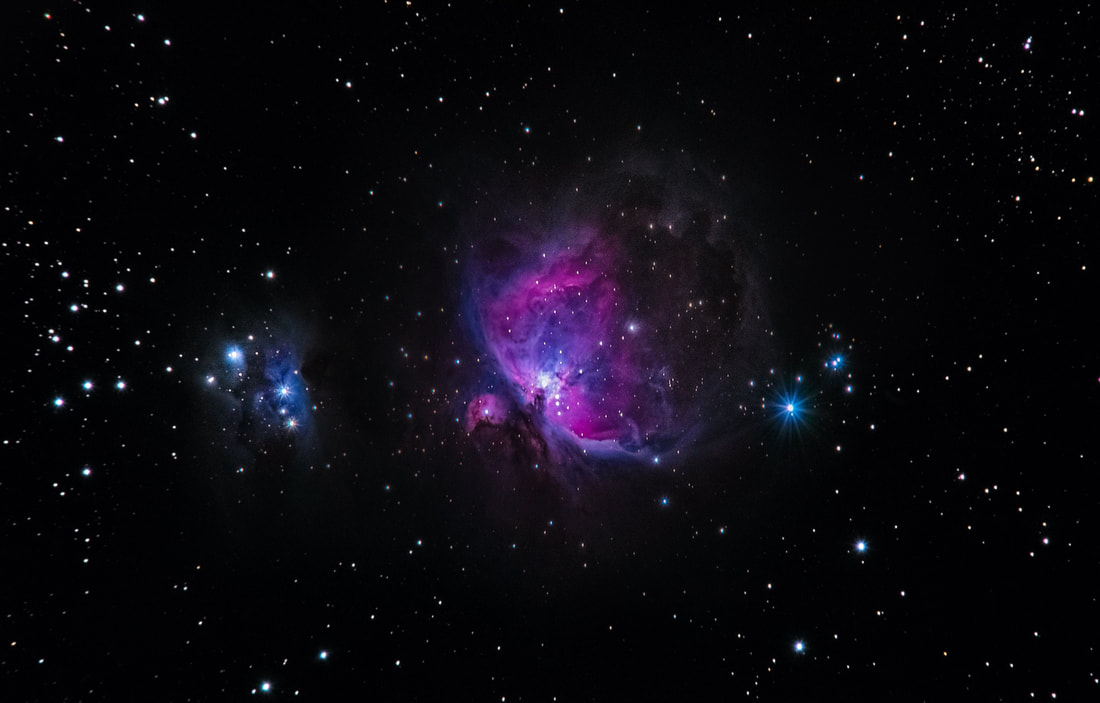

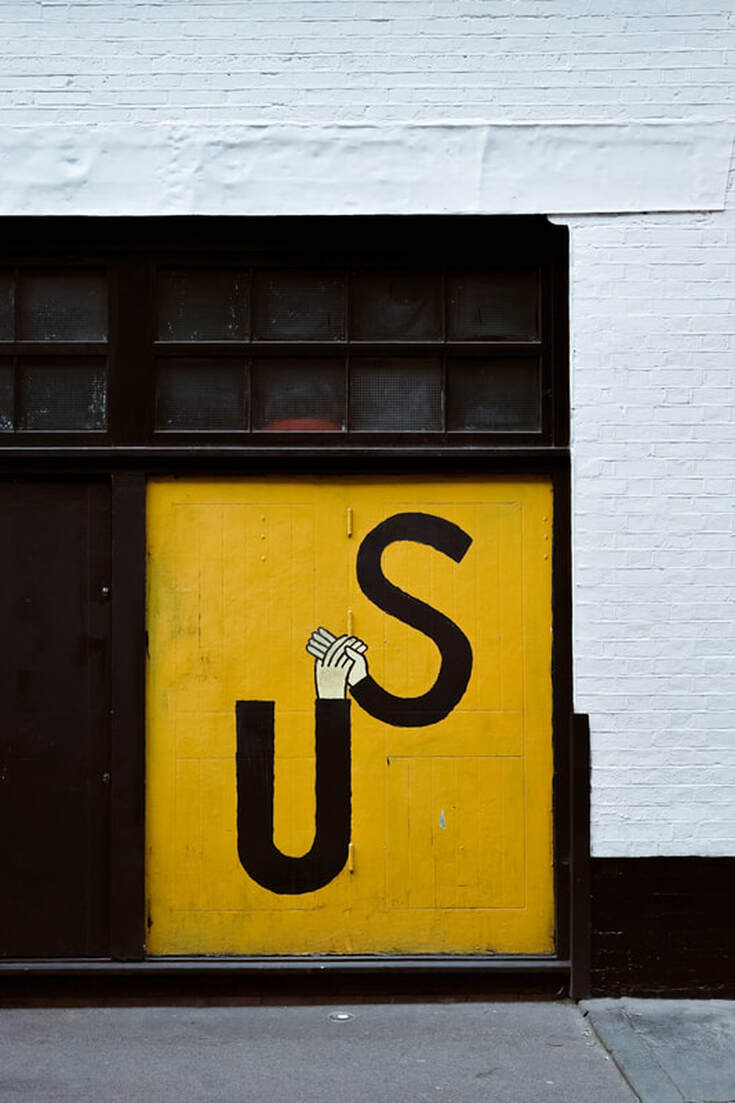
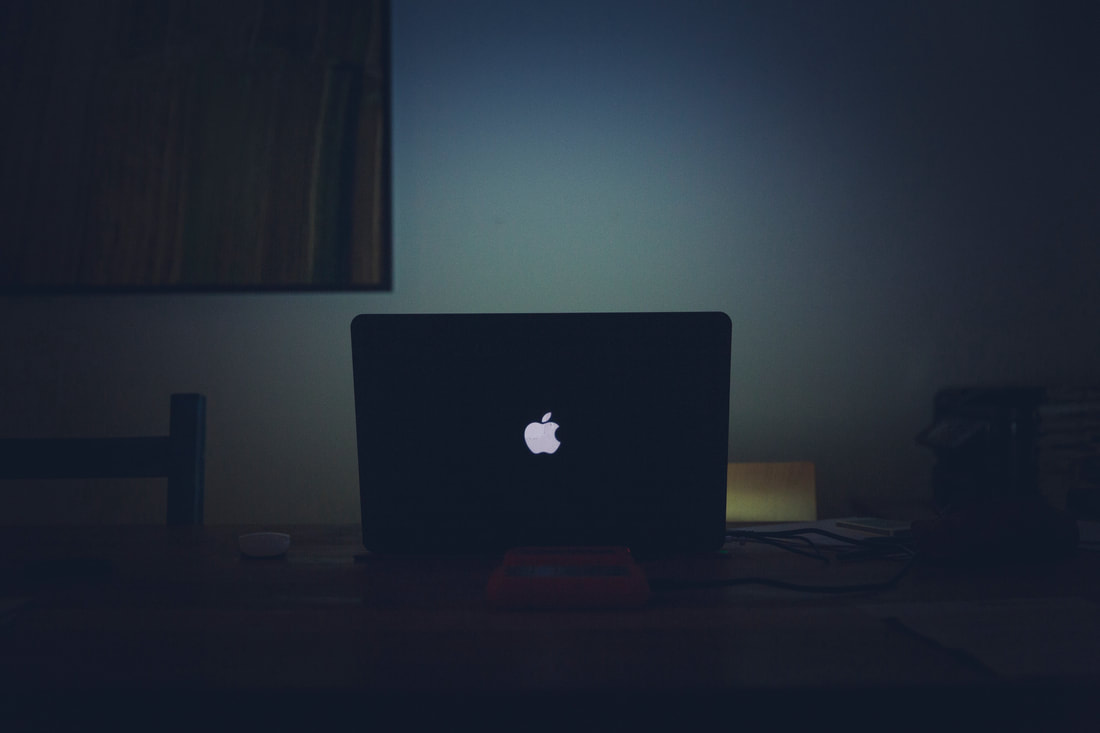
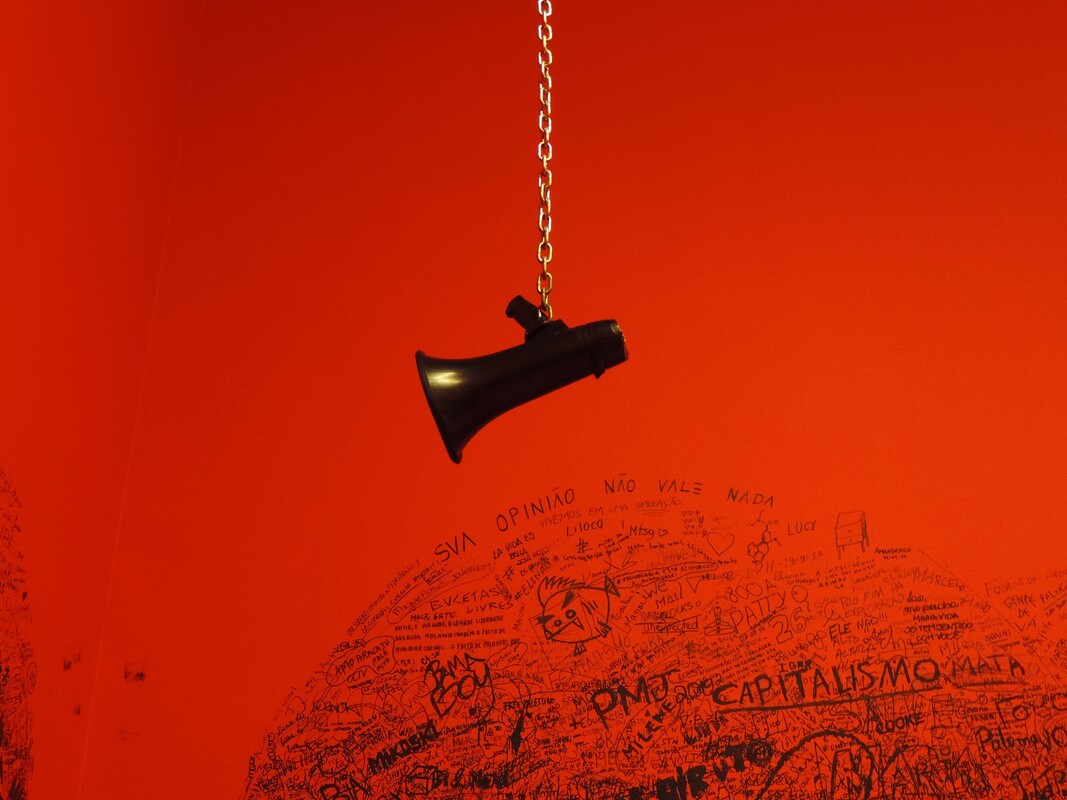
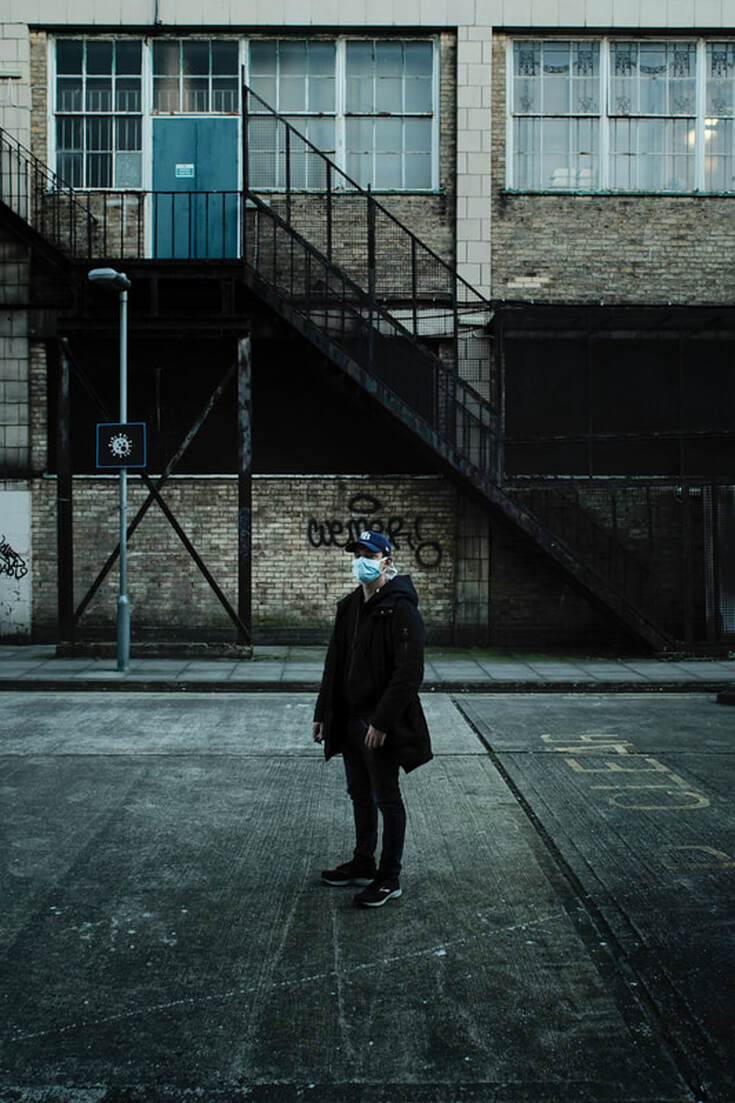
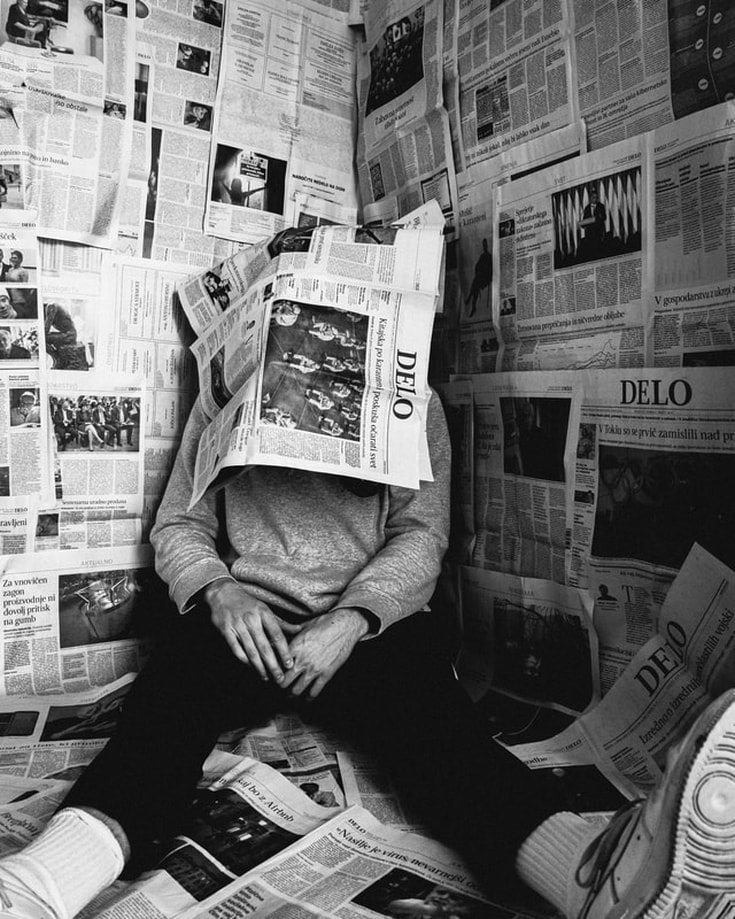

 RSS Feed
RSS Feed